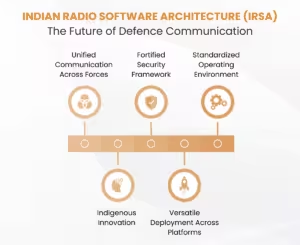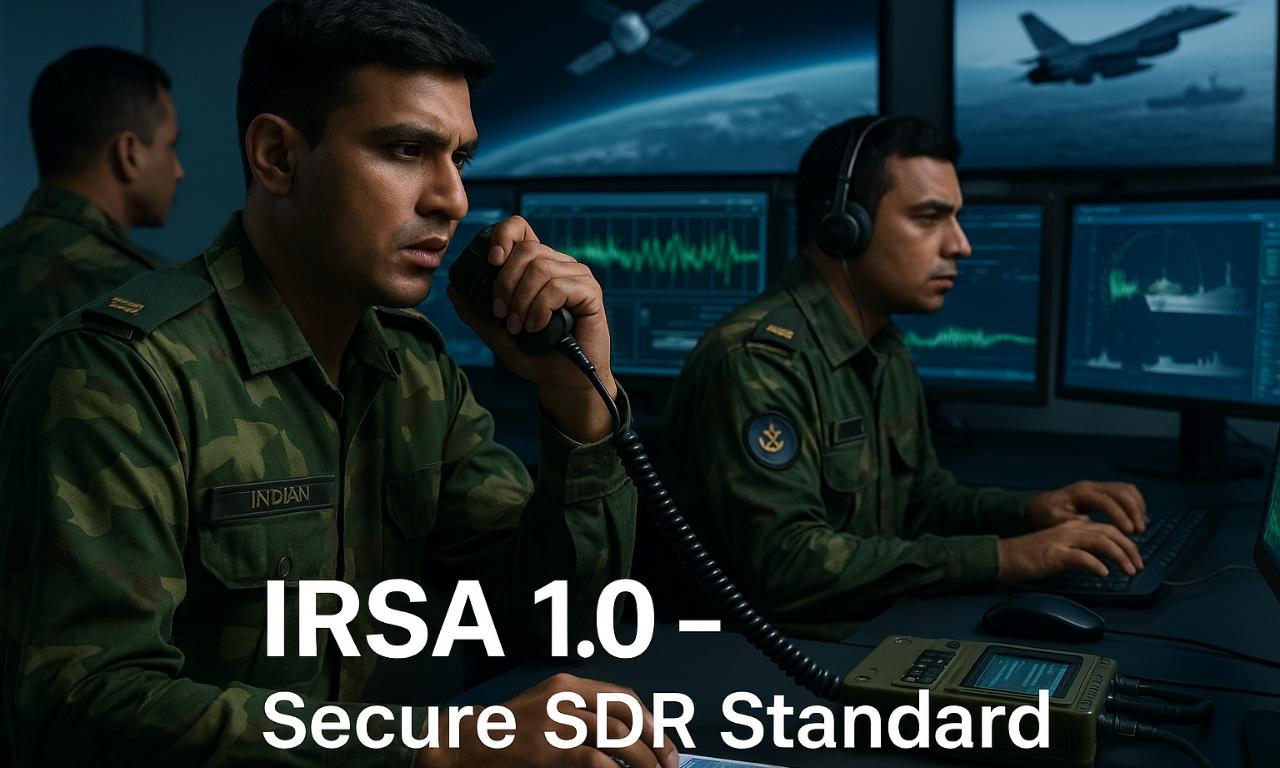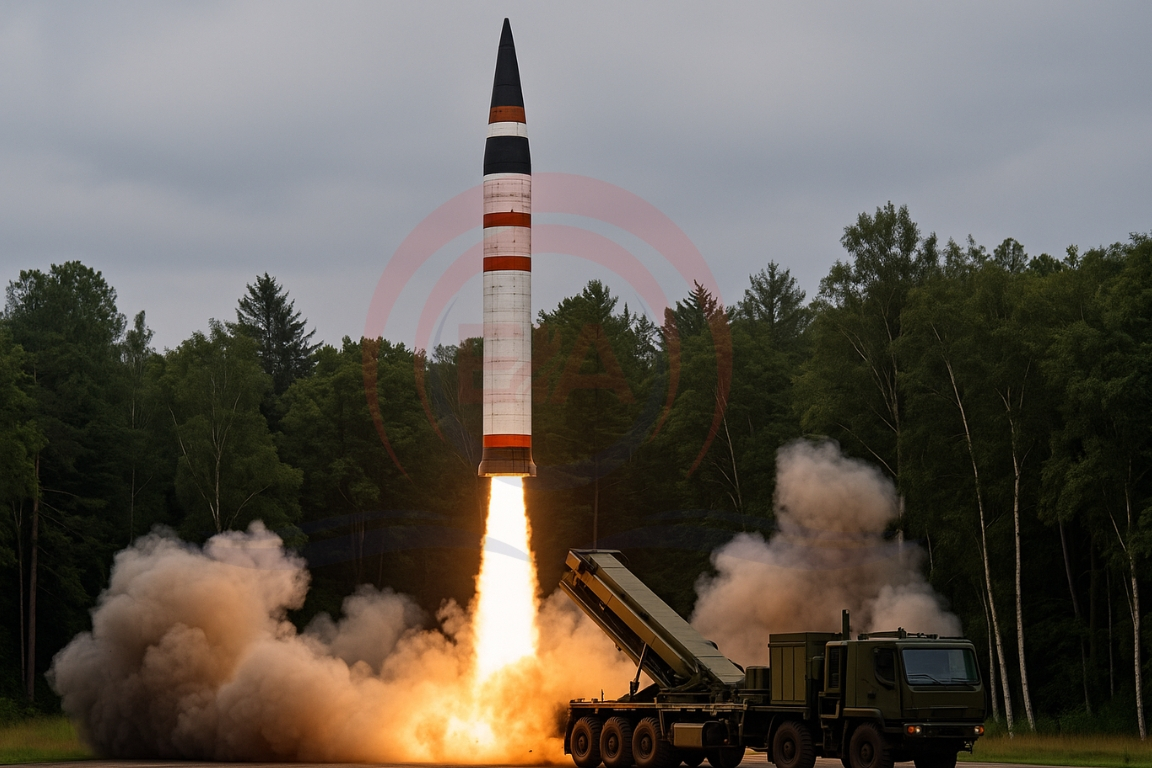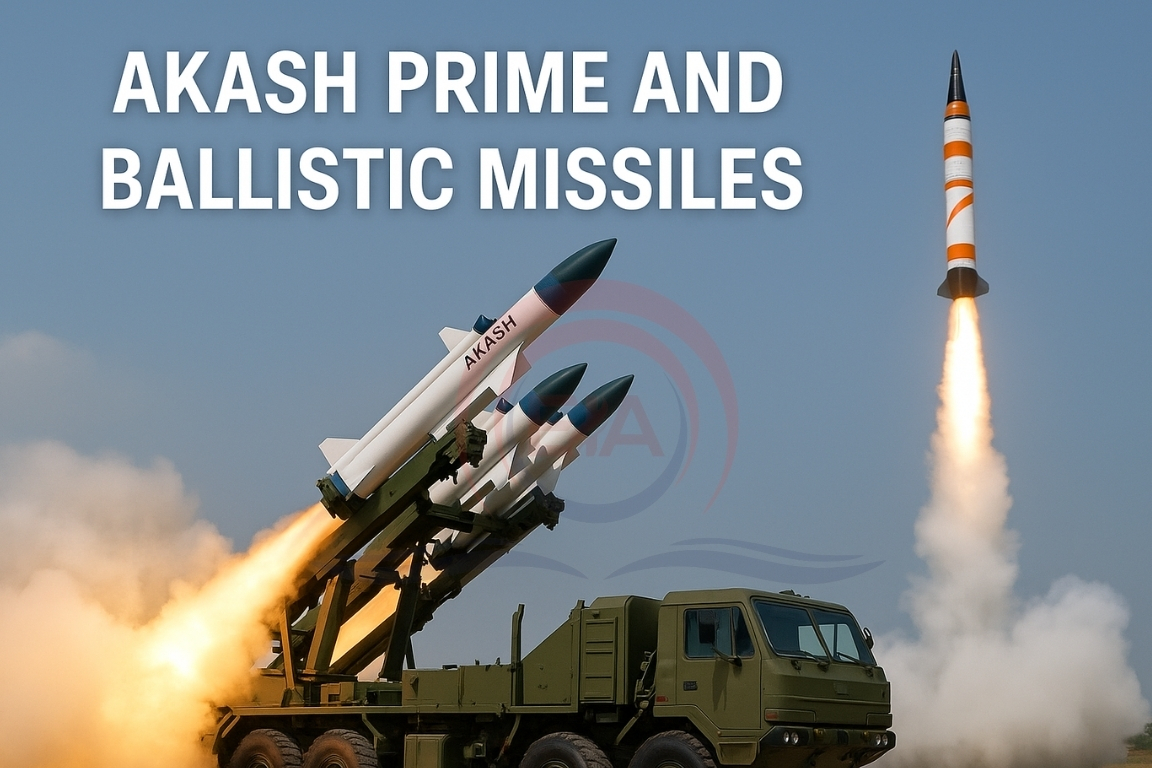Recently, the Defence Research and Development Organisation (DRDO), in collaboration with the Integrated Defence Staff and the Tri-Services, launched Indian Radio Software Architecture (IRSA) Standard 1.0, marking a major step in defence communication technology.
About IRSA
- IRSA provides a standardized software architecture that enables secure and efficient communication between different radio systems used by the armed forces.
- It is India’s first national specification defining a unified structure for Software Defined Radios (SDRs).
- Vision: To make IRSA a global standard, allowing India to export IRSA-compliant SDR technologies to friendly nations.

Key Features
- Defines interfaces, APIs, and execution environments for SDR systems.
- Ensures waveform portability, interoperability, and certification standards.
- Enables secure communication across multiple platforms within the Indian military network.
Global Context
- IRSA places India among an elite group with the US (SCA framework), Europe (ESSOR), and NATO (STANAG) SDR standards.
- Developed under the Directorate of Standardisation (DoS), Ministry of Defence.
About Software Defined Radios (SDR)
- SDRs use software-based systems instead of traditional hardware components to manage communication.
- They are flexible, upgradeable, and suitable for modern, multi-band operations in a rapidly evolving digital environment.
Significance
- Enhances interoperability and cybersecurity among India’s defence networks.
- Reduces dependence on foreign communication systems.
- Strengthens India’s position as a global leader in secure radio technology.
This topic is available in detail on our main website.





